Will Indonesia's new capital just move the problem to the jungle?
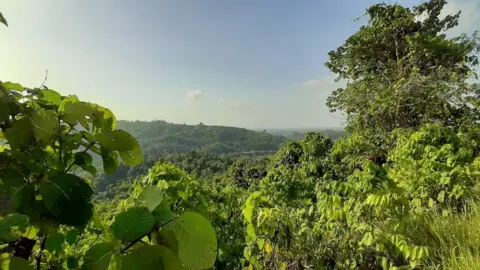 Wwf
WwfAfter years of speculation and debate, Indonesia announced last week that it will be moving its capital from Jakarta to East Kalimantan, nearly 1,300km (800 miles) away.
Jakarta has become crowded and polluted and is sinking at an alarming rate. East Kalimantan, on Indonesia's part of Borneo island, couldn't be more of a contrast - it's known for its lush rainforest and is home to orang-utans and other rare wildlife.
The move will cost an estimated 466 trillion rupiah ($32.79bn; £26.73bn) and will be one of the biggest infrastructure projects the government has ever undertaken.
So what will it take to uproot a capital - and at what cost?
Why is this happening?
Researchers say that large parts of Jakarta, home to more than 10 million people, could be entirely submerged by 2050.
North Jakarta has sunk by 2.5m (8ft) over the past 10 years and is continuing to sink an average of 1-15cm a year. Almost half the city is already below sea level.
One of the main causes is the extraction of groundwater to meet the growing city's needs. The city is also built on marshy lands and the surrounding seas are rising.
The city's traffic jams are also notorious - government ministers have to be escorted by police convoys to get to meetings on time.
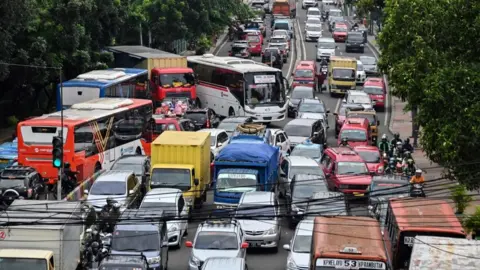 Getty Images
Getty ImagesThe planning minister has said snarl-ups costs the economy 100 trillion rupiah ($6.8bn, £5.4bn) a year.
Jakarta is also one of the most air-polluted in the world and is overcrowded and expensive - many people live in informal housing settlements.
Where will the new capital be?
It will be built across two regencies called Kutai Kartanegara and Penajam Paser Utara in the region of East Kalimantan. Work is slated to begin in 2024.
Plans show it will cover around 180,000 hectares - that's three times the size of Jakarta.
Indonesian President Joko Widodo has said the area was chosen for several reasons. For one, it's not as exposed to the natural disasters - floods, earthquakes, volcanic eruptions and tsunamis - which plague other parts of Indonesia.
It's also near urban areas that are already relatively developed - the cities of Balikpapan and Samarinda.
"[There is already] some infrastructure and existing cities [nearby]," Johannes Widodo, an associate professor in the National University of Singapore's School of Design and Environment told the BBC.
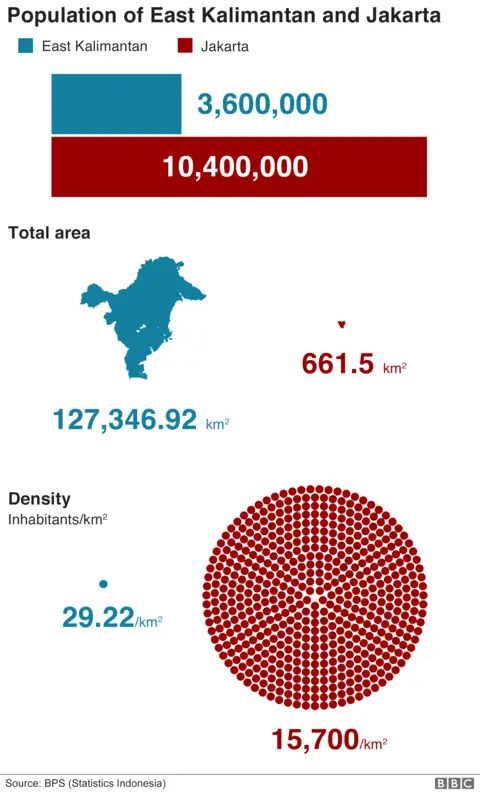

The actual site of the new capital, however, is relatively undeveloped. It's mostly palm oil plantations and forests that have been cleared by logging, said WWF Indonesia director for Kalimantan Irwan Gunawan.
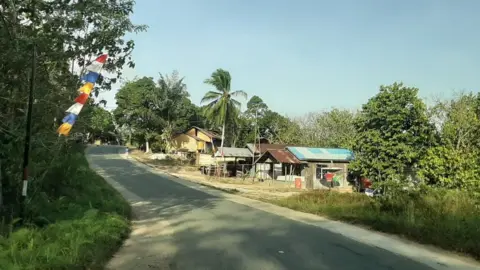 WWF
WWFThese areas were once home to rich vegetation but have already been "destroyed" in the years past - and Mr Gunawan told the BBC he was worried that this destruction will only grow once the new capital is developed.
Jakarta will still remain the centre of business and trade - it's just the country's administrative headquarters that will be moving.
But Mr Gunawan said that "as a developing country, all the decisions are made in the central government area.
This is "going to attract massive migration and if people are moving in it's unavoidable they would need houses, and you need timber for construction... so it's possible that logging would get worse".
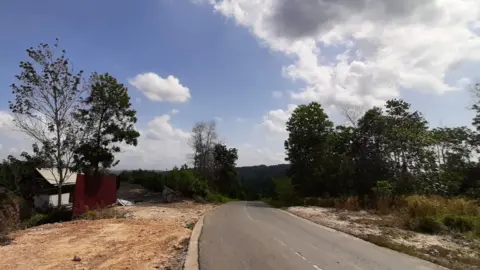 Wwf
WwfSome of this migration is already happening. Agung Podomoro Land, a property developer, announced that it would be building luxury apartments, hotels, shopping malls and other facilities in East Kalimantan.
In nearby North Kalimantan province, a massive project to build a hydropower plant said to be worth $17.8bn is also in the works. It's clear the government is doing its bit to develop Kalimantan as a whole.
What effect will this have on the environment?
East Kalimantan is still home to a diverse range of wildlife and lush rainforests. It's especially known for being home to orang-utans.
The Indonesian government says at least 50% of the capital will consist of green spaces. The Minister of National Development Planning Bambang Brodjonegoro has called the concept a "forest city".
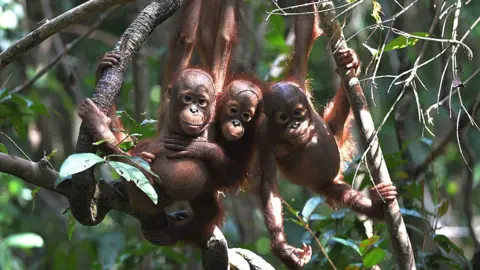 Getty Images
Getty ImagesBut Mr Gunawan isn't convinced.
"It's not enough by saying that this new capital would be maintained as a forest city - it's not only that exact area but the surrounding areas that need to be considered," he said.
"Orang-utans have already suffered significant decline over the past 20 years due to the expansion of palm oil plantations and logging. Their habitats are far away from the new capital but as it grows, new settlements will grow... and will eventually reduce the habitats of the orang-utans. It's just a matter of time."
Another campaigner from environmental group The Indonesian Forum for the Environment (WALHI) agrees.
"Deforestation will happen. More mining for construction material [will take place]," Sawung, an Urban and Energy campaigner at WALHI, told the BBC.

Sawung - who uses one name - adds that if the government does not do its part to tackle the problems that plagued Jakarta, "it's only [moving] Jakarta's problems - of water, air pollution, transport and housing - to Kalimantan".
What about the people who are already there?
At the moment, almost all of the wealth from the natural resources in this area flow to Java - the island on which Jakarta sits. Indonesians outside of Java have long complained about being neglected by the central government.
One resident of East Kalimantan told BBC News Indonesian that it would be "nice to be close to the central government". Another said they hoped it would translate to better resources in the area.
But Mr Sawung say many locals still remain "sceptical" about the move, saying they believed only "government officials and businessman" would benefit.
And there's another big group of people who have not been consulted - Kalimantan's indigenous groups, known collectively as the Dayaks.
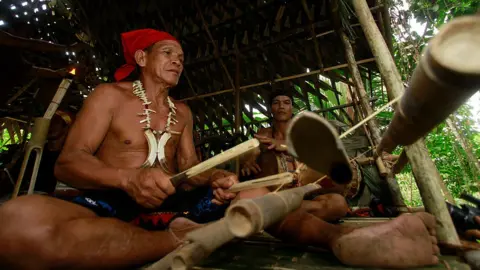 Getty Images
Getty Images"The Dayak are forest-dependent people... their ways help us maintain the forest ecosystem. Their rights should be protected. We don't want them to become like the [indigenous people] of Jakarta who have been sidelined," said Mr Gunawan.
Advocacy group Minority Rights Group International (MRGI) says the move would "destroy" the Dayak's environment.
"The Dayaks have been persistent victims of environmental degradation," Joshua Castellino of the MRGI told news agency Reuters.
"The abandonment of Jakarta due to pollution and overcrowding is hardly an endorsement for a move into someone else's backyard where the same will likely occur."
Reporting by the BBC's Yvette Tan and additional reporting by Callistasia Wijaya
